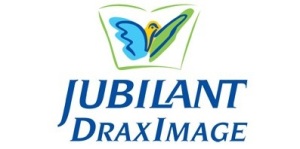Hospitals exploring alternatives after radiotracer price hike
by
Lisa Chamoff, Contributing Reporter | July 17, 2014

Hospitals are beginning to explore and use alternatives to two manufactured radiotracers that both saw major price increases earlier this year.
Canadian radiopharmaceutical firm Jubilant DraxImage announced at the end of February that it was increasing the prices of macroaggregated albumin (MAA) and diethylenetriamine pentaacetate (DTPA), which are used for ventilation/perfusion (V/Q) scans to diagnose or rule out a pulmonary embolism. The company, which had announced a shortage of MAA last September, said the previous prices had not covered production costs or allowed for any manufacturing improvements, putting the long-term availability of MAA and DTPA at risk.
Some facilities are investigating custom MAA vials from compounding pharmacies, which work directly with prescribers to prepare personalized medications for patients, at a lower cost than the commercial kits. AnazaoHealth Corp., a specialty pharmacy headquartered in Tampa, Fla., that serves the nuclear medicine market, has seen more interest in the product.
The company came out with the custom compounded MAA vials, which were sold for a higher price than the commercial kits during the drug shortage, Robert McKenzie, senior vice president of research and development for AnazaoHealth, told DOTmed News. After Jubilant DraxImage increased their prices, AnazaoHealth started receiving more calls about the custom vials.
"We cannot state for sure that this is why we've seen the increase," McKenzie said. "I believe it's because they see the clinical value in custom preparations."
While there is no other manufactured drug that can be used as a substitute for MAA in the perfusion portion of the scan, which evaluates how well blood circulates within the lungs, some facilities have recently switched to a lower-cost, but still effective, substitute for DTPA - pyrophosphate, or PYP, for the ventilation part, which examines airflow.
Dr. Herman Kensky, a radiologist with the Mercy Radiology Group in Sacramento, Calif., started using PYP in the last month, and said that while it is still early, he has found that PYP is equally effective for the ventilation test.
"I can't tell the difference when looking at the images, and my technologists say that there's no difference in performance to date," Kensky told DOTmed News. "If price is the only difference, we're going to stay with this new method."
Dr. Mark Tulchinsky, professor of radiology and medicine and associate director of nuclear medicine at Penn State Milton S. Hershey Medical Center, has been surveying his colleagues in the field about what they have been doing since the price increase, and learned that several facilities are seeking out the compounded pharmacy solution or have started using PYP as a DTPA alternative. Tulchinsky told DOTmed News in May that after April 1, his facility saw the price of an MAA vial increase from $26 to $561 and the price of a DTPA vial increased from $23 to $172. Prices vary from facility to facility based on agreements negotiated with pharmaceutical companies.
|
|
|
You Must Be Logged In To Post A Comment
|
